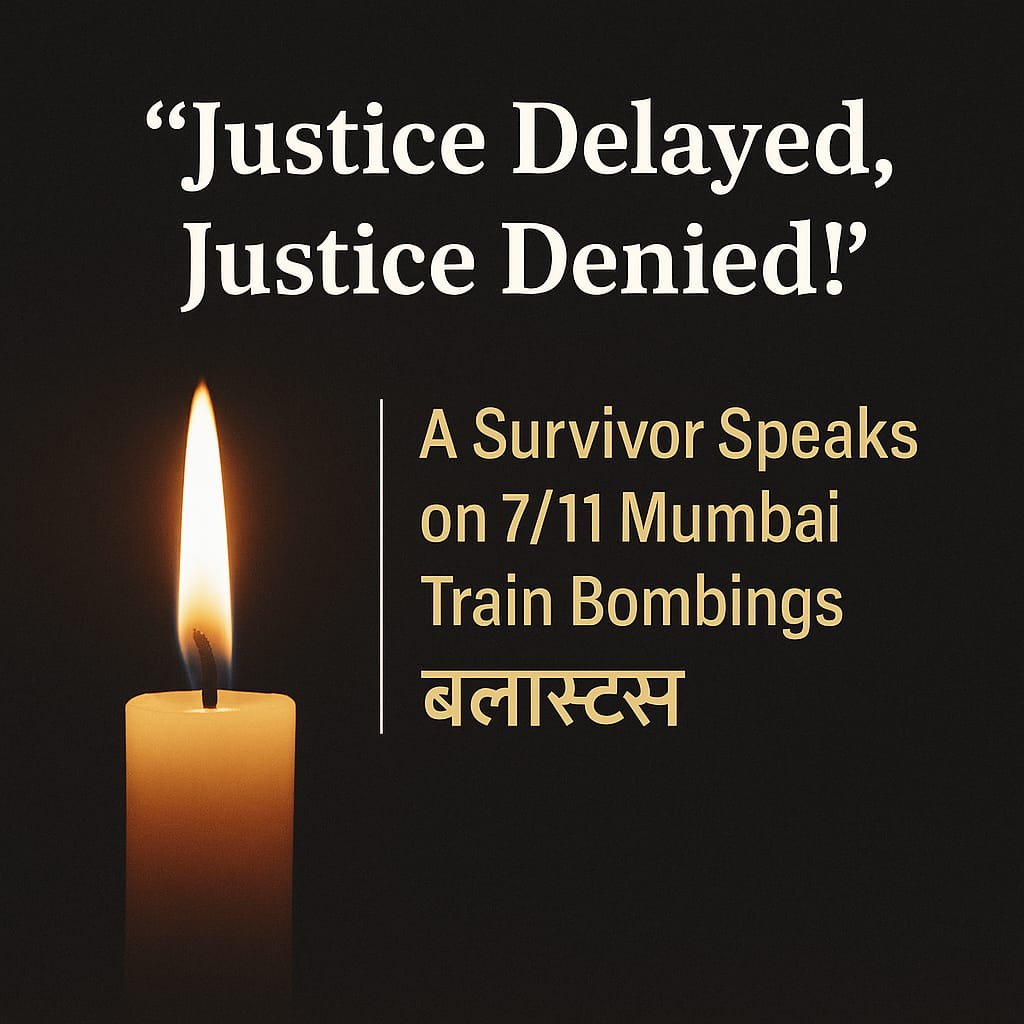On the tragic evening of 11 July 2006, the local trains, the lifeline of Mumbai, turned into a disaster and bombs exploded in the front first class, destroying lives. Many lives were lost. 189 people were killed. It is a very sad incident in history that more than 800 people lost their lives.
Even after 19 years, the pain of the victims and the survivors is still fresh. They believe that they did not get justice. The system there has disappointed them a lot.
A City Under Siege
Bombs exploded in pressure cookers in trains running between Churchgate and Borivali between 6:24 and 6:35 in the evening. This accident was very precise and also very tragic. The buses used to be full, there used to be crowds in the buses. Today that has remained a dream.
Eyewitnesses remember seeing mangled bodies, limbs strewn across platforms, and scattered body parts and screaming and seeing many injured people and a serious person speaking about the injured said that it was not just an accident. It was the sound of many dreams being shattered.
Arun Diwar, who survived one of the targeted Debo, says, “I was returning home and I lost my three companions and I was badly injured. But even today I am mentally injured.”
The Long Road to Justice
During the investigation, many people were arrested and in 2015, 12 people were convicted, out of which five were sentenced to death and seven were sentenced to life imprisonment. After such a long time and after the verdict, the victims and their families feel very sad.
Arun says we gave so many statements, went to the courts, presented our answers in the courts, recovered from the shock, but why wait for only 9 years and even now the delay in appeals and judgment makes us feel very sad. What was the solution for us?
More Than Physical Wounds
Beyond the headlines and the courts, the victims’ lives have been disrupted and the victims’ lives have become a living hell. Many families lost their children and many children grew up without their parents and many families lost their breadwinners. It was a very sad incident.
Suman Joshi, who lost her husband in the tragic incident of explosion, says that the government has given us compensation, but what about our emotional thinking. My son was 3 years old when he ate his father. Even today he asks me the same question that why has my father not returned by train yet. What answer should I give him when he asks where my father is?
The tragedy also exposed gaps in India’s emergency response system, medical readiness, and counterterrorism preparedness.Though a lot of improvements have been made since then, memories of 7/11 still haunt us and remind us that justice and vigilance should never be delayed.
A Cry for True Justice
Today, survivors and victims are demanding more from the legal system. They want accountability, speedy trials, and the right to help and support victims of terrorism.
In Arun’s words, justice is not only meant to punish the culprits, but to remind the victims how much their pain matters and it means not to forget their pain after the disappearance of the headlines and help the victims in every way.
Last but not least
7/11 Mumbai The bombings on the train were not just an attack on a city but also a huge attack on the sentiments of the nation. While remembering the victims, we also need to reflect on the systemic delays that make justice a dream for the victims and take so long for them to get justice.
Because in matters of terror, pain, and public faith — Justice delayed is truly justice denied.
About the Author
Sahil is a passionate law student currently pursuing BBA-LLB (3rd Year) at Maharishi Markandeshwar (Deemed to be University), Mullana, Ambala. Interested in social justice, human rights and legal reform, Sahil uses writing to raise voices that often go unheard.He believes that law and justice do not only mean giving punishment but also correcting people and stopping them from turning to crime.His main aim through his article is to raise awareness, ignite thoughts and encourage important issues happening in the society.

